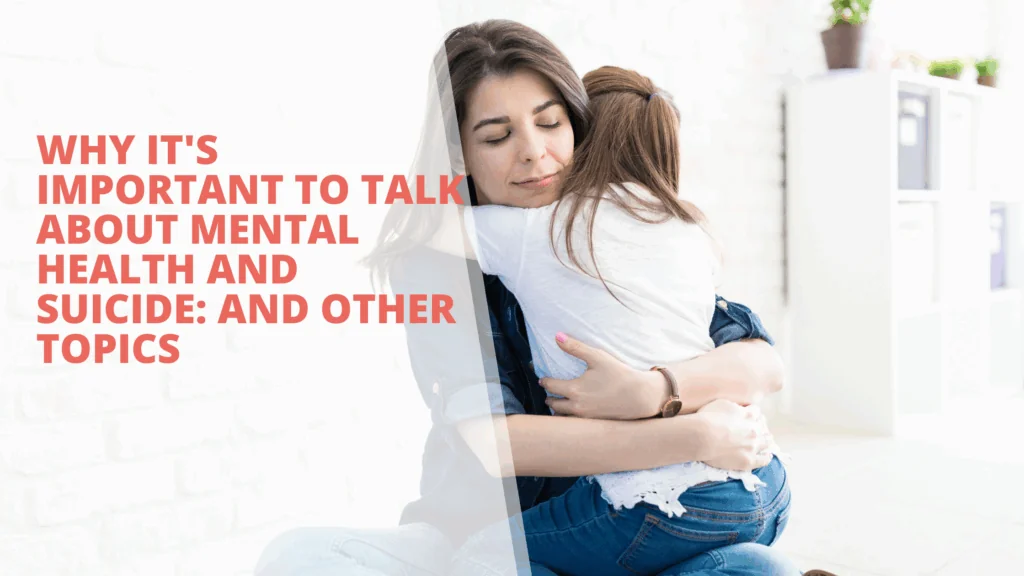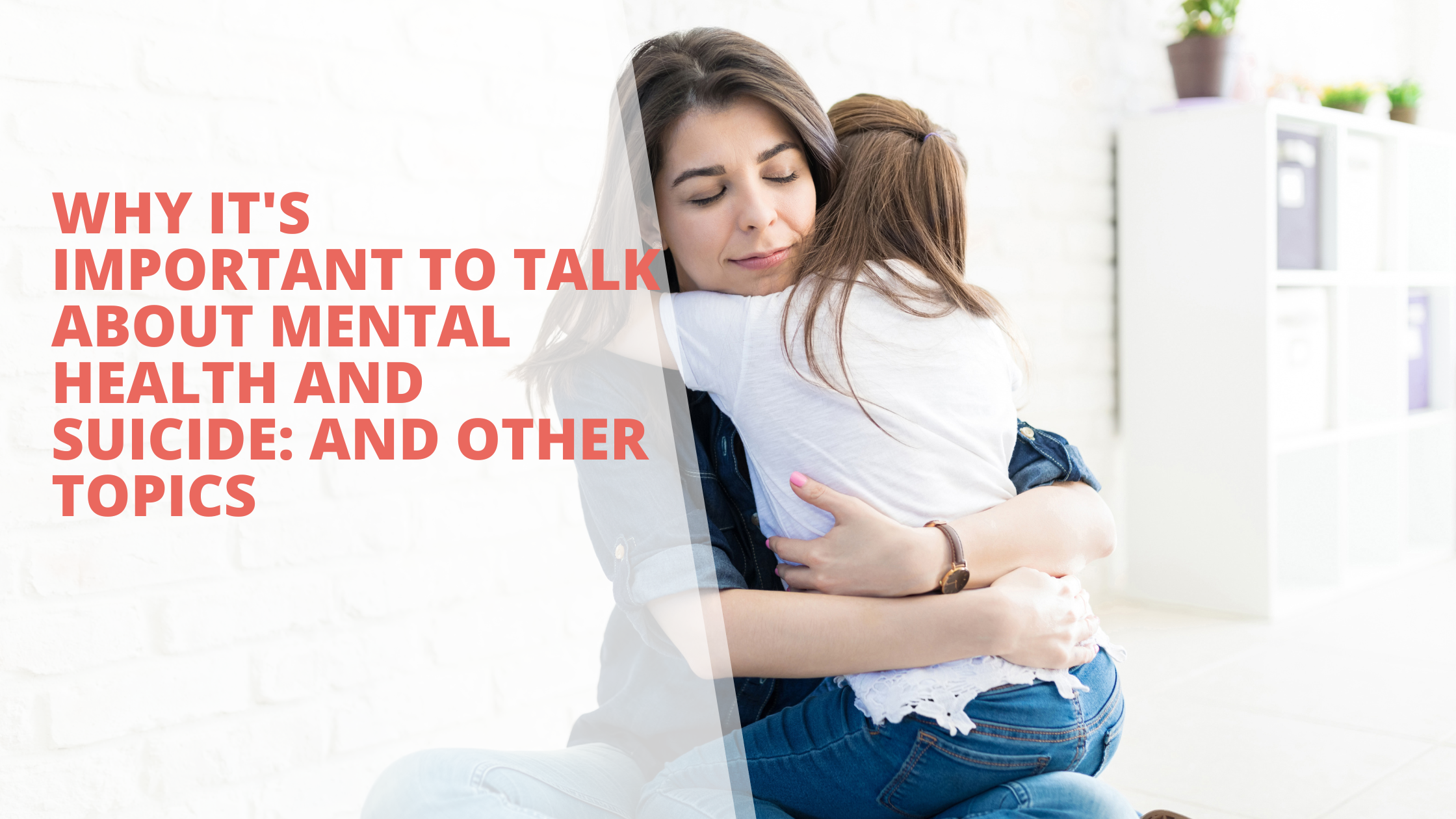
**This blog mentions suicide and mental health. If you are impacted in any way please reachout to the many services on our website here.
The heartbreak of losing a loved one to suicide is unlike anything most of us can imagine. You’re left with questions that have no answers and a future that will never be lived. For me, this pain sits close through my extended family. There are no words that truly fix it. But one thing is clear: we need to start conversations about mental health and suicide when our kids are young, so that when life gets hard inside their minds or in their world they have tools, language, and support.
I believe The Table Talk Project can help to create that space, where everyone has a voice and no conversation is off-limits. In a research project we ran with 90 families across Australia before we launched The Table Talk Project, very few spoke about mental health, and none spoke about suicide. That was confronting. As parents and carers, we can’t control everything, but we can create a home where tough topics are normalised and safe to talk about.
Beyond a single day
RUOK? Day is coming up soon. It’s a valuable reminder to check in with the people around us. I’m grateful for it when people ask me, but I still long for this conversation to be normalised. How do we make “How are you, really? or RUOK?” a natural part of family life?
At The Table Talk Project, we include a simple “Dessert” moment, a gentle pause to ask, “Is there anything else you wish you shared?” That one question creates room for honesty. It’s also a chance to turn to someone you’re concerned about and say, “I just want to check in. How are you going right now? I’ve noticed you’ve seemed a bit flat lately.”
The dinner table can hold laughter and games, and it can hold depth. You don’t have to be an expert. You can’t “fail” at care. Take a breath, lead with love, and be willing to get a little vulnerable. You don’t have to go anywhere you’re not ready to go. Your presence and your question communicate something powerful: you are not alone.
Do we still know how to talk?
When was the last time you sat down together, not a rush, but a real dinner with meaningful conversation where everyone felt listened to and heard?
Someone recently asked me why so many families don’t eat together. A survey (Old El Paso) suggests up to seven in ten Australian families don’t share meals regularly. There are lots of reasons: busyness, distractions, and habits we didn’t grow up with. But there’s another truth: many of us were never taught how to have deeper conversations.
Since COVID, I’ve noticed more children struggling with social confidence and conversation. Many adults feel it too. Vulnerability and empathy are skills, and if they weren’t modelled for us, it’s hard to pass them on. That’s why creating simple, repeatable rituals matters. When we practise with our kids, we’re building muscles they’ll use for life.
Try this at your table this week
During Dessert, ask: “Is there anything else you wish you shared?”
When it’s your turn, consider adding:
- “How’s your mental health at the moment?”
- “Is there anything you’re finding tough this week?”
- “What would help you feel more supported?”
Reassure your family: “This is a safe space for anything.” Then model it by sharing something small and real from your own week.
How to make it age-appropriate
Under 5s (playful & simple)
- Keep it tiny: Aim for 5–7 minutes of “together talk” inside dinner, not a long sit-down. Routine beats length.
- Show, don’t tell: Use a simple feelings chart (happy/sad/mad/scared) or coloured cards. “Can you point to how you feel?”
- Easy prompts:
- “What made your face smile today?”
- “What made your face frown?”
- “Can you show me with your hands—was the feeling big or small?”
- “Where did the feeling sit in your body—tummy, chest, head?”
Ages 5–8 (simple and safe)
- “What was a big feeling you had today?”
- “When you felt sad or worried, what helped your body feel calmer?”
- “Who could you talk to when you have tricky feelings?”
Ages 9–12 (naming feelings, normalising help)
- “What feelings showed up most this week—happy, worried, angry, tired?”
- “When school feels heavy, what helps: talking, moving your body, drawing, quiet time?”
- “If a friend felt low, what could you say to them? What could we say to you?”
Ages 13–17 (permission for honesty, practical support)
- “On a scale of 1–10, how’s your headspace this week?”
- “What’s one stress we could lighten—time, chores, school pressure?”
- “If things got really tough, who are your ‘go-to’ people? (Home, school, coach, counsellor.)”
Young adults
- “What’s been weighing on you lately?”
- “Would you like me to just listen, or help problem-solve?”
- “What support would feel useful this month—study, money, appointments, time out?”
Parent to parent / carers
- “What’s your mental load like right now?”
- “How can we share the load this week so both of us can breathe?”
- “When do we get our check-in—can we put it on the calendar?”
If someone says “I’m not OK”
- Thank them: “I’m really glad you told me.”
- Listen more than you speak. Avoid rushing to fix.
- Ask: “Do you want me to just sit with you, help with next steps, or both?”
- Agree on one gentle next step (sleep, fresh air, call a friend, book a GP/counsellor).
- If you’re worried about safety, stay with them and seek immediate help.
Nine Australians die by suicide each day. That breaks my heart. It also reminds me why the table matters. Every shared meal, every open question, every “I’m here for you” is another stitch of safety and connection.
Let’s talk about mental health and suicide. Making it normal conversation.
A gentle note
If talking about suicide brings up strong feelings for you or someone you love, please reach out: Lifeline 13 11 14, Beyond Blue 1300 22 4636, or 000 in an emergency. You’re not alone.

